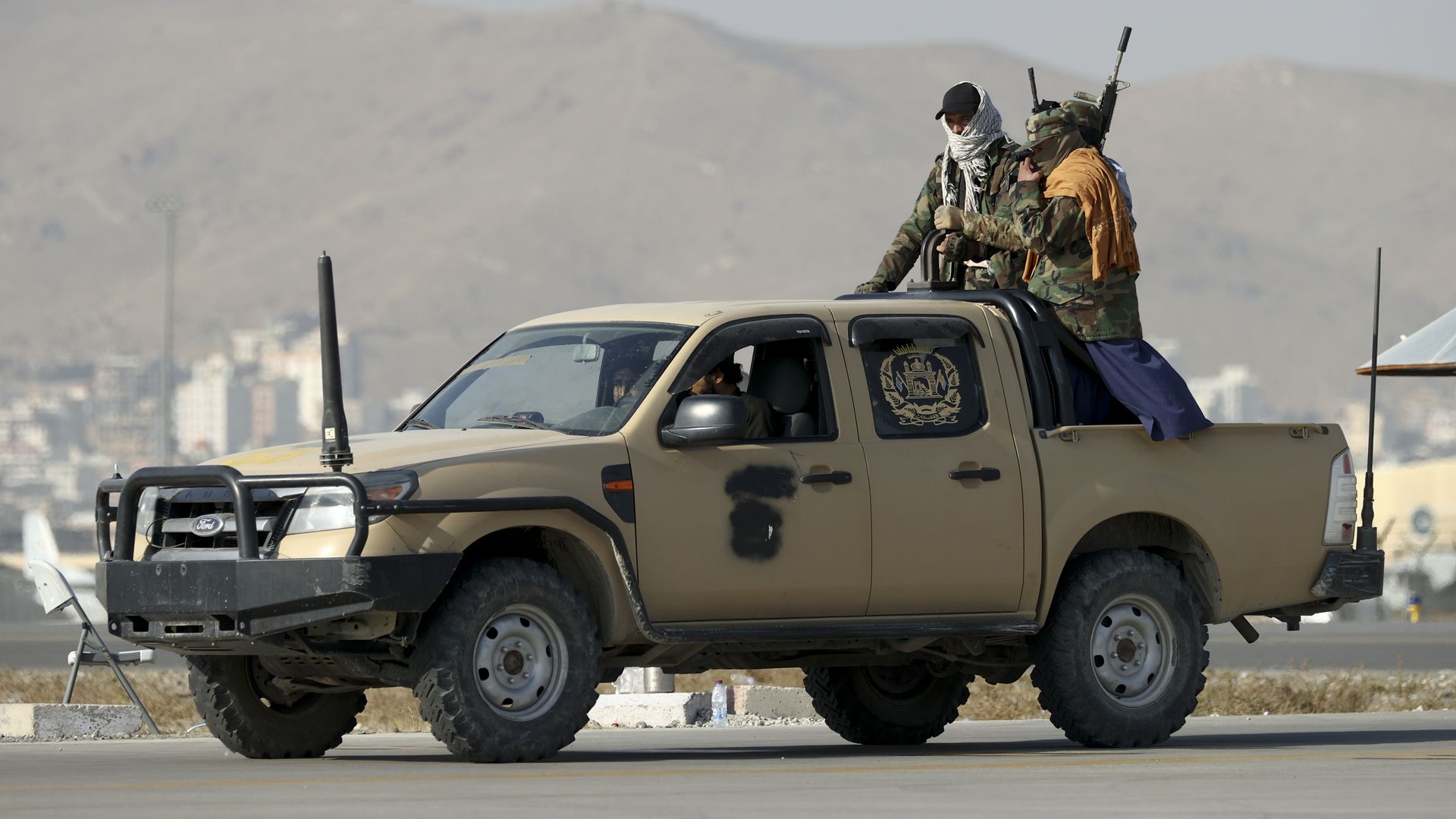Over 100 former Afghan security members dead or missing under Taliban rule
Add Axios as your preferred source to
see more of our stories on Google.

Members of the Taliban movement patrol Kabul's airport in September. Photo: Valery Sharifulin/TASS via Getty Images
The Taliban have "killed or forcibly disappeared" over 100 former members of Afghanistan's security forces since the group took power in August, a Human Rights Watch report published Tuesday found.
Why it matters: Former military members and officials from the ousted government, activists and other Taliban critics are facing peril amid executions driven by revenge — despite Taliban promises of an "amnesty" with no retributions, notes the New York Times, which first reported the news.
By the numbers: The report outlines the "summary execution or enforced disappearance" of 47 former members of the Afghan National Security Forces (ANSF), who had surrendered to or were apprehended by Taliban forces from Aug. 15 to Oct. 31.
- HRW research suggests that the Taliban also killed or disappeared at least 53 others.
The big picture: The report focuses on Ghazni, Helmand, Kandahar, and Kunduz provinces, "but the cases reflect a broader pattern of abuses reported in Khost, Paktiya, Paktika, and other provinces," according to HRW.
- Taliban leadership directed former security force members to register to receive a letter guaranteeing their safety, but Taliban forces "used these screenings to detain and summarily execute or forcibly disappear individuals within days of their registration," the report states.
- "The Taliban have also carried out abusive search operations, including night raids, to apprehend and, at times, forcibly disappear suspected former officials," per an HRW statement accompanying the report.
- Patricia Gossman, associate Asia director at Human Rights Watch, called on the Taliban in a statement to "prevent further killings, hold those responsible to account, and compensate the victims’ families."
Between the lines: The report comes as the Taliban campaigns to access the roughly $8 billion in Afghan foreign reserves that have been frozen by the U.S. amid a worsening humanitarian crisis.
- The Biden administration has said the reserves are among the "carrots and sticks" the U.S. has to influence the Taliban, and decisions on such issues will be based on the Taliban's conduct.
What to watch: Thomas West, the U.S. Special Representative for Afghanistan "has raised our concern with Taliban leaders," said a State Department spokesperson in an emailed statement Wednesday condemning the reports of Taliban brutality.
- "And, he's made clear to the Taliban that they will be held accountable for their success or failure in ensuring their promise of amnesty is upheld throughout their ranks," the spokesperson said.
- "This includes taking appropriate action against all Taliban members who have engaged in retaliation and to prevent any further acts of retaliation."
What they're saying: Taliban spokesperson Inamullah Samangani told the NYT that the ruling Afghan group was "fully committed to the amnesty" and that such killings and disappearances weren't Taliban policy, blaming rogue fighters for trying to "settle old scores."
- "We don't have a security system yet in place, and some people are taking advantage of this vacuum, misusing the name of Islamic Emirate, and carrying out such killings," he added.
- "Revenge killings aren't in the interest of our government. They are harmful to Islamic Emirate’s reputation at this critical time."
Go deeper: Afghan ambassador decries country's "betrayal"
Editor's note: This article has been updated with comment from the State Department, more details from the report and further context.
